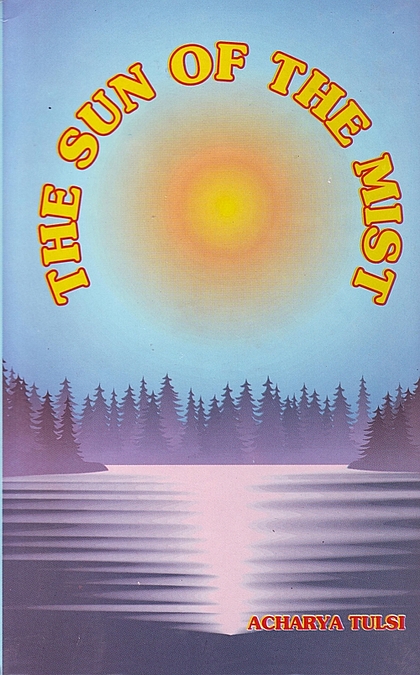A man's life is like an ocean. In it there is nectar as well as poison. And a lot more. When this ocean is stirred with the churning stick of conduct, the deeper elements come to the surface. When the poison inside him spills out, a man proves to be much more dangerous than a serpent or a scorpion. His thought, speech and action, there like poisoned arrows, completely destroy the person before him. Keeping this in view, the divine counsel for man has always been to make his life sweet as nectar.
Forgiveness is nectar. The man endowed with forgiveness is freed from the poison of bitterness and he becomes like nectar. In Jainism, the glory of forgiveness has been a the med with all gravity. Among the four doors leading to religion, the first is forgiveness. Without entering this door, no one can go far on the grand path. Also among the ten offices enjoined on monks, the first is forgiveness. Forgiveness is life’s splendour, its pride. Forgiveness is God. Forgiveness is Truth. Forgiveness is the ascetics mould. It is, therefore, necessary to disseminate forgiveness far and wide.
Kshamapana.Kshamayachana and Khamatkhamna—all these three words revolve round kshama, i.e. forgiveness. To ask forgiveness for one’s mistakes to forgive other people'smistakes—these two concepts are compounded in Khamatkhamna. Khamatkhamna, the virtue of forgiving and being forgiven, manifests itself truly when there is toleration. In the absence of toleration, remains a mere verval assertion without much significance, at times even ironical. One who practises forgiveness is always tolerant. A forbearing person does not care to underscore another's fault, nor does he remember it, nor does he misbehave with another. If, unwittingly, he is guilty of having caused a misunderstanding, he immediately clears it up. Of course, the forgiving person is also an ordinary individual, not an enlightened sage who has transcended all passion. He, too, is caught in attachment, and not free from the feelings of revenge and fear. Because of these and other causes, he can get excited at times in such a situation, the sayings of great men and teachings based on these are of great help in dissolving anger. Similarly, certain days of commemoration are also instrumental in changing the direction of one's life. The festival of Paryushan(‘Adoration’) is the festival of forgiveness. While doing worship on this occasion, a king of atmosphere is built up which melts even a most hard—hearted person. A man should avail of such affective moments to set right his misguided heart. Anger destroys oneself, not others. With this thought in mind, one should get rid of one's wrath, thus accomplishing one’s own good and that of others.
On the auspicious occasion of Paryushan Parv, the Festival of Adoration, a man performs Khamatkhamna, the rite of forgiving and being forgiven. Whether this rite has been properly performed, is to be determined not by others,‘ but by oneself. If alter having performed Khamatkhamna, 0ne’s mind is lightened of its burden and the thorn pulled out of the heart, filling one with inexpressible joy, it would mean the rite has been properly performed. After this one is disposed kindly towards all. Irrespective of the other person's response, one's own mind is free from any feeling of enmity towards another. With one’s heart imbued with love and friendship, one’s mind gets gradually purified.
The practical aspect of Khamatkhamna has been described in the Agamas as follows:
"O beloved of the gods! I ask forgiveness of you. Kindly grant me pardon. Because you are fully competent to do so."
Without the capability, it is not possible to grant or receive forgiveness. As a result of Khamatkhamna, one’s mind, speech and body merge into one whole, a unity. The purity of thought, speech and action is its culmination. Once the knot has been resolved, not to provide another occasion for it to re-form, is the consummation of Khamatkhamna. That man is truly forgiving who forgets the past, brings about a change in his present thinking, and is determined not to resort to any trickery in the future.
 Acharya Tulsi
Acharya Tulsi
